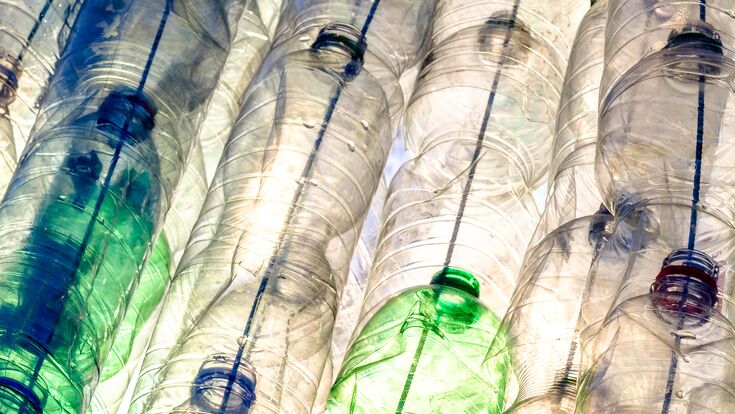Waste Sorting : AMP Robotics expands partnership with Evergreen

AMP Robotics Corp., a pioneer in AI, robotics, and infrastructure for the waste and recycling industry, has extended its partnership with Evergreen, one of North America’s three largest producers of food-grade recycled polyethylene terephthalate (rPET). Evergreen, which has grown through acquisitions to four locations across North America from its original facility in Clyde, Ohio, now has 15 of AMP’s robotic sorting systems guided by artificial intelligence installed or planned across three facilities. In addition to six robots in Clyde, Evergreen has added six in Riverside, California, and will soon add three in Albany, New York.
AMP’s technology identifies and sorts green and clear PET from post-consumer bales of plastic soft drink bottles at speeds up to three times faster and at a higher accuracy than manual sorters can achieve. Evergreen then recycles the material into reusable flakes or pellets, which it sells to end markets as feedstock for new containers and packaging.
With AMP’s robots focused on refining the quality of material, separating plastics more precisely by color, Evergreen has seen a notable improvement in purity along with pick rates of up to 120 bottles per minute—an increase of up to 200%. The robots are removing up to 90% of contamination, on average, across different lines at Evergreen’s Clyde facility.
Thanks to its expansion and infrastructure investments, Evergreen’s annual capacity of rPET has swelled to more than 147 million pounds, up from 40 million pounds one year ago. Evergreen has also increased the number of post-consumer PET bottles it collects and recycles, from two billion PET bottles annually to 11.6 billion bottles.
“As a leader in the transition to recycled PET from virgin resin, the precision and accuracy of AI-enabled robotics has allowed us to better monitor material composition throughout our operation, increase capture, and ensure high quality in the rPET resin we produce,” said Greg Johnson, Evergreen general manager. “We want to recover all we can, and with AMP’s technology, we are—thereby helping to supply a higher-quality end product and a larger volume of recycled plastic for brands to source for their recycled content goals and sustainability commitments.”
In addition to PET, AMP’s AI platform precisely identifies and captures plastics including high-density polyethylene (HDPE), low-density polyethylene (LDPE), polypropylene (PP), and polystyrene (PS), sorted further by color, clarity, and opacity, along with different form factors—lids, tubs, clamshells, cups, and more. AMP’s technology also recovers cardboard, paper, cans, cartons, and many other containers and packaging types reclaimed for raw material processing. It can quickly adapt to container packaging introduced into the recycling stream with recognition capabilities to the brand level—increasingly critical as demand for sufficient quantities of high-quality recycled material grows to meet consumer packaged goods companies’ commitment to use of post-consumer recycled content.
